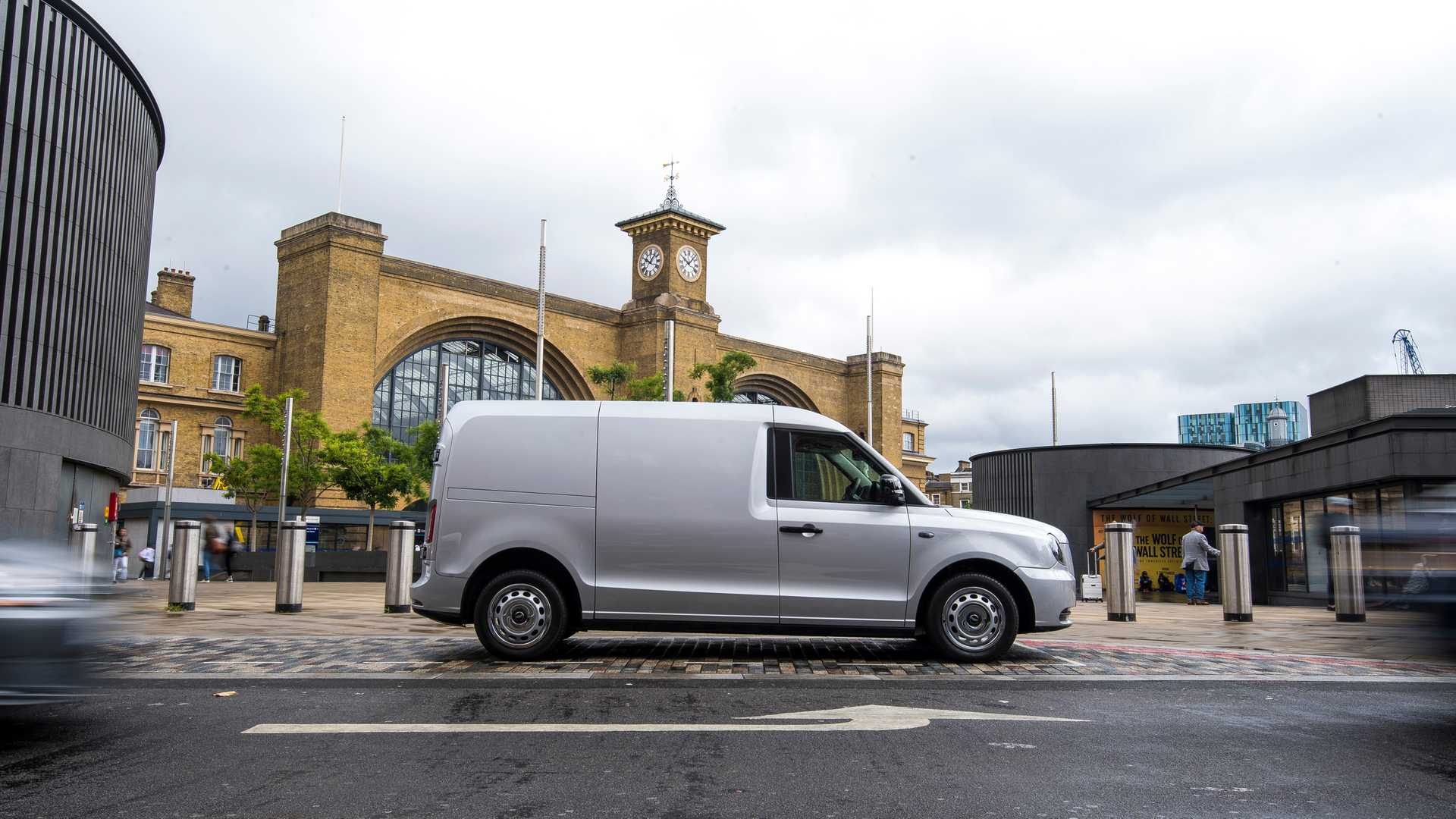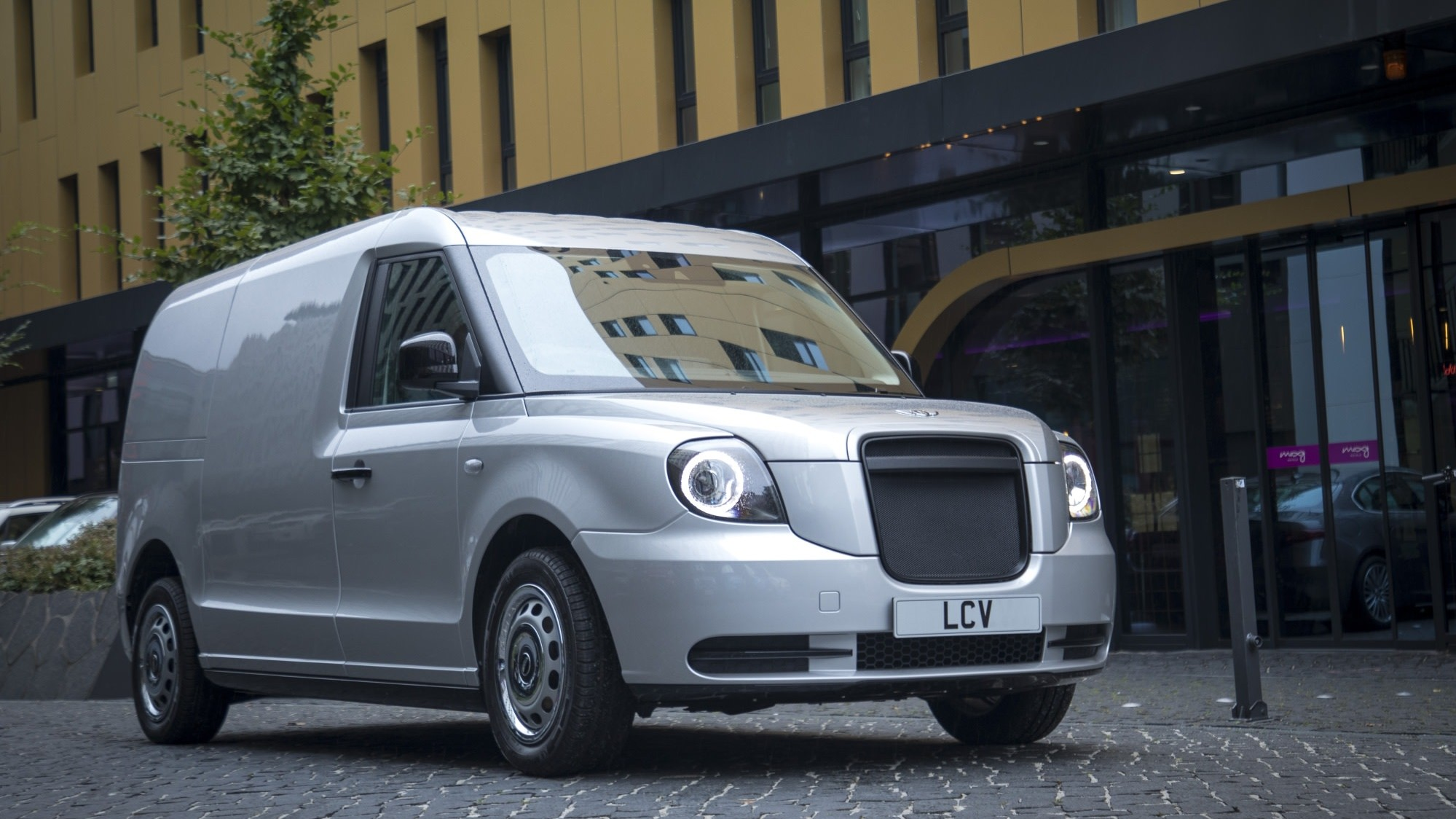The London EV Company Electric Van Delivers 377 Miles Of Range With The Help Of Gasoline
Following the successful launch of the TX Electric Taxi two years ago, which saw over 2500 units delivered to cabbies across the UK, the London Electric Vehicle Company unveiled it's sized-up model for delivery van drivers. The company continued its creative naming scheme by dubbing this the LEVC Electric Van. And it's got more range than Emma Stone. There's only one problem; it can only go 377 miles when it is topped up with petrol for its gasoline-powered range extender.
The Electric Van can be used as a pure BEV with a range of 80 miles. This is more than likely the same exact drivetrain as found in the TX Electric Taxi, which includes a 147-horsepower electric motor and 31 kWh of floor-mounted batteries.
If you want to hit that 377 mile range for your delivery van, you'll have to hit the pumps for a tank full of dino juice for the Volvo-sourced 1.5-liter 3-cylinder turbo gasoline-powered range extender. That engine—known as the B3154T—is plucked straight out of the XC40. It doesn't power the wheels, but acts to charge the battery pack. It's not quite enough range to get you from Land's End to John o' Groats, but it's a godsend if you're an on-call repair person or delivery driver making a dozen or more stops per day without time to recharge.
While this delivery van does still use gasoline to alleviate range anxiety, this hybrid system emits significantly less than the traditional diesel white vans the UK has become accustomed to. By running at a steady state RPM, the engine is far more efficient. This also allows for the versatility of being zero emissions on a short route, but can still pick up a longer route without switching to a different vehicle.
The Mayor of London, Sadiq Khan, was on hand for the unveiling of the new LEVC van. He applauded the efforts, saying "I am delighted that LEVC is applying the lessons learnt from designing and building London's electric black cabs to this new van. Developing clean, sustainable, electric vehicles is essential in order to tackle our air quality emergency and the climate change crisis. London's commitment to clean air policies is driving our pursuit of a positive electric future for all."
London Electric Vehicle Company expects the delivery van to be a larger volume project than its cabs, hoping to sell as much as 60% of its volume in overseas markets. It has a factory in Coventry which is capable of assembling as many as 20,000 vehicles per year.
Delivery vans are no small market, as nearly half a million are sold in the U.S. market alone. LEVC faces competition in the UK market from Ford's Transit Custom PHEV, which has an electric range of 35 miles and a combined range of just 310 miles. Those extra miles are crucial for the delivery business.

Geely took over the London cab maker in 2014, and has spawned a massive turnaround in recent years, renaming it LEVC and focusing on electrified tech. This is the first time the company has built anything with a focus outside of the city of London. Geely also owns controlling interest in Lynk & Co., Volvo, Polestar, and Lotus, as well as 49.9 percent of Proton.
From a design standpoint, I rather like the old-school charm of the delivery van. It looks like a London cab that has been inflated 15 percent or so. It seems like a practical application of electrified tech in a sector that desperately needs it. Vans tend to be stored in the same place every night, like a depot or a company headquarters, so slapping a charger in the nose every night means a potentially significant long-term fuel cost savings for these companies.
The van is planned for an on-sale date of October. Pricing hasn't been announced yet, but the TX cab starts at 59,000 pounds, and the company has said the Electric Van will be significantly less expensive as it aims for a larger volume of sales.
[Edited 02/19/20 at 8:20 PM : This article has been updated to clarify that the van comes as standard with a range extender.]
